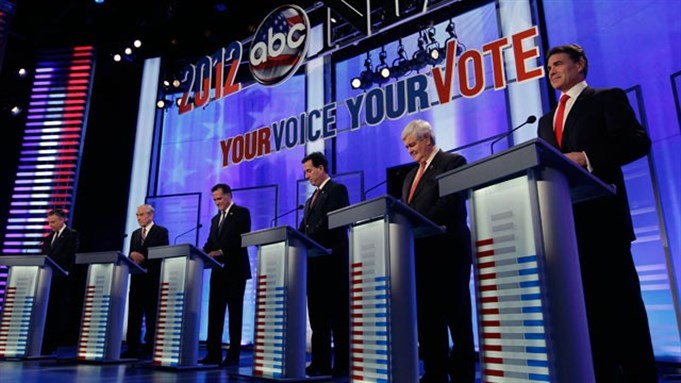Several days after Israeli air force struck targets inside Syria, President Bashar al-Asad bravely condemned the assault. Moreover, he also asserted with defiance that Israel is trying to “destabilize” Syria, debunking thereby the claims that, by striking a part of Syria`s sovereign territory, Israel was trying to promote Arab unity and social justice from the gulf to the ocean. The Syrian regime reserved for itself once more the right to retaliate when it sees fit, augmenting thereby the rights that it affords itself to retaliate to Israeli strikes inside Syrian territories. In 2007, Israel also struck targets north of Syria and the regime was not quick in responding with defiance also by condemning the attack and reserving for itself the right to respond when it saw fit. When you collect three instances in which you are attacked and you reserve for yourself the right to retaliate, you get a prize from the international community.
As if these retaliatory actions were not sufficient, Syria also formally complained to the United Nations about the attack. Some Syrian regime officials also decided to demonstrate peacefully and unarmed against Israeli aggression in a Damascene quarter, but were concerned that other regime officials might take them out with tanks. Meanwhile, even higher-level regime officials prevented the demonstration from taking place because if the other regime officials strike the peaceful regime officials` demonstration, the latter regime officials might turn Islamist, invite foreign meddling, funding, and stinger missles, while a portion of them will turn into JAN-like* networks, invite other foreign fighters, and create further complexity (*Jabhat al-Nusrah-h-h-h).
For its part, the US administration yet again demonstrated its customary political integrity in foreign relations in its dealing with the news of a hostile attack on one’s soil. Its response to the Israeli strike against Syria was literally to warn Syria about transferring weapons to Hizballah. Ben Rhodes, White House deputy national security adviser, said "Syria should not further destabilise the region by transferring weaponry to Hezbollah." The best analysis attributes this concern to the potential ability of Hizballah to strike Israeli jet fighters that have never stopped violating Lebanese airspace since 2000, or to F-16s and F-18s that bomb Lebanese cities, quarters, and villages to smithereens, as in summer 2006. The US administration, consistent with previous US administrations, takes sovereignty very seriously when it involves allies, a perfectly understandable position. What is confusing to the US government, however, are the attempts by state and non-state actors to defend themselves against the violation of their airspace and the destruction of their land and peoples.
Instead, the US administration suggested the export to Lebanon of water/soap bubble dispensers that, upon impact, over the years, might cause the sides of jet fighters either to rust or experience discoloration. (a yellow duck dispenser will be provided to avoid suspicion, and to match Hizballah’s colors, which is a really nice touch).


The Turkish foreign minister, Ahmet Davutoglu, was furious with Syria for not retaliating, and reportedly said that “Turkey will not stand by as Israel attacks a Muslim country.” Assumingly (not sure if this is a word, but MS Word did not underline it in red when I typed it, so I’m going with it. Still, it’s not sitting well with me. “Hopefully,” which is not a proper word, sits better), wondering why Syria was so trigger-happy in downing a Turkish warplane in international skies last year, Davutoglu asked “[w]hy didn’t Assad even throw a pebble when Israeli jets were flying over his palace and playing with the dignity of his country?” For his part, Turkish president Recep Tayyip Erdogan told reporters that “Israel has a mentality of waging state terrorism and added that “We cannot regard a violation of air space as acceptable . . . . I am worried that in a situation like this, any scenario can play out in the future.”
As a result, either Davutoglu or Erdogan, will plan to retaliate by walking out on an Israeli official at a high profile public event (which usually terrifies the Israelis, especially when Turkish officials do not take care to un-clinch their microphones as they storm out in protest).

As usual, Israel was quite compassionate about the whole ordeal. On the one hand, it treated the strike like it does the Palestinians: the strike does not exist. On the other hand, it generously declared that it will not try to ethnically cleanse Syrians from Syria, no matter how close that country is to Judea and Samaria, distance-, spelling-, or pronunciation-wise.

Oh, and three people within the entire Syrian opposition condemned the attack on Syria. One went so far as to say that in future correspondence with Israeli officials over a peaceful settlement he will refrain from adding “Best” at the end of emails. Considering the circumstances in Syria, the Israeli government welcomed the gesture and insisted that the overwhelming majority of its settlements are rather peaceful so long as Arabs stay away.
The Syrian regime has learned next to nothing from Hizballah, و الحمد لله.
![[Syrian President Bashar Assad, center, stands next to Syrian Defense Minister Gen. Dawoud Rajha, right, and Chief of Staff Gen. Fahed al-Jasem el-Freij, left, during a ceremony to mark the 38th anniversary of the October 1973 Arab-Israeli war.(AP Photo/SANA, File)]](https://kms.jadaliyya.com/Images/357x383xo/AP701650300297-3copy.jpg)

















